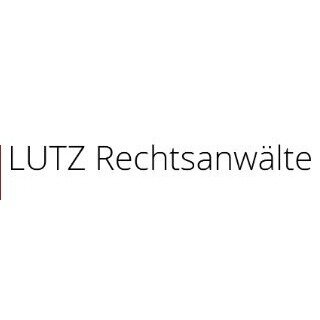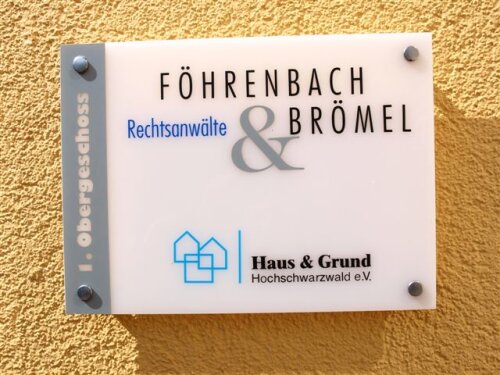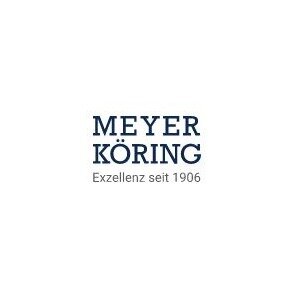Best Conveyancing Lawyers in Germany
Share your needs with us, get contacted by law firms.
Free. Takes 2 min.
Free Guide to Hiring a Real Estate Lawyer
Or refine your search by selecting a city:
List of the best lawyers in Germany
About Conveyancing Law in Germany
Conveyancing in Germany refers to the legal process of transferring property ownership from one person to another. This process is strictly regulated by German law to protect both buyers and sellers. Unlike some countries, Germany requires the involvement of a notary, who is a neutral officer responsible for drafting and authenticating the necessary documents. The property purchase agreement, or Kaufvertrag, must always be notarized. Only after proper registration in the land register (Grundbuch) does the change of ownership become legally effective. Understanding the conveyancing process is essential for anyone looking to buy or sell real estate in Germany, whether residential, commercial, or land.
Why You May Need a Lawyer
Many people believe a notary alone is sufficient, but various situations make legal guidance crucial during conveyancing in Germany. Here are some common reasons to consult a lawyer:
- Reviewing or negotiating complex contract terms to protect your interests
- Handling issues involving joint ownership, inheritance, or divorce-related property transfers
- Dealing with existing mortgages, liens, rights of way, or easements on the property
- Assessing property-related risks, such as contaminated land or planning restrictions
- Assisting non-German speakers or foreign nationals with legal documentation and language barriers
- Resolving disputes with other parties during or after the conveyancing process
- Ensuring compliance with anti-money laundering laws and proper source of funds documentation
Local Laws Overview
Several key aspects of German law impact the conveyancing process:
- All real estate transactions must be notarized by a German civil law notary (Notar). Oral or private agreements are not legally effective for property transfers.
- Only once the transaction is entered into the land register (Grundbuch) does the buyer acquire legal ownership of the property.
- The buyer is usually responsible for paying the property transfer tax (Grunderwerbsteuer), which varies by federal state between 3.5 percent and 6.5 percent.
- The notary ensures all contractual requirements are fulfilled before any payment is due, safeguarding both parties.
- Financing arrangements, such as mortgages, can affect the timeline of a purchase, as banks often require a first-ranking land charge registered in the Grundbuch.
- Buyers should conduct due diligence, including checking for encumbrances, tenancy rights, or public law restrictions attached to the property.
- Foreigners can buy real estate in Germany, although additional documentation may be required for identification and compliance purposes.
Frequently Asked Questions
What is the role of the notary in German property transactions?
The notary prepares, reads out, and notarizes the contract, handles formalities with authorities and registries, and oversees compliance with all legal requirements, but does not represent either party's interests.
Do I need a lawyer if there is already a notary involved?
While the notary is essential, a lawyer can provide independent advice, review contracts, negotiate clauses, and protect your personal interests throughout the process.
What taxes and additional costs should I expect when buying property?
Expect to pay property transfer tax (3.5 to 6.5 percent), notary and land registry fees (about 1.5 to 2 percent), and possible agent fees (up to 7 percent), depending on local practices.
How long does the conveyancing process take in Germany?
Typically, the process takes between 6 to 12 weeks, depending on the complexity and whether financing is required.
What is the Grundbuch, and why is it important?
The Grundbuch is the official land register listing all ownership and encumbrances for a property. Only registration in the Grundbuch makes you the legal owner.
Can I withdraw from a signed property purchase agreement?
Once notarized, the contract is binding. Only under specific circumstances, such as mutual agreement, contractual rescission rights, or legal defects, may a withdrawal be possible.
Are there special legal protections for property buyers in Germany?
Buyers should be aware that German law generally operates on the principle "caveat emptor" (buyer beware), so thorough due diligence is crucial. Sellers are obliged to disclose known defects, but hidden defects can lead to claims.
Is it possible for non-residents to buy property in Germany?
Yes, both EU and non-EU citizens can purchase real estate in Germany without restrictions, though compliance with anti-money laundering regulations is strictly enforced.
What should I check before buying a property?
Conduct a thorough examination of the property, check the Grundbuch for encumbrances or restrictions, and review any building permits, tenancy agreements, or existing leases.
Can I buy property using a mortgage from a foreign bank?
Some foreign banks will grant mortgages for German properties, but most buyers use German financial institutions that are familiar with local procedures and requirements.
Additional Resources
If you need further information or assistance regarding conveyancing in Germany, the following resources can be valuable:
- The Chamber of Notaries (Bundesnotarkammer) - Guidance on finding a notary and understanding the process
- The Federal Ministry of Justice (Bundesministerium der Justiz) - Legal information and property law regulations
- The German Bar Association (Deutscher Anwaltverein) - Lawyer directories and legal advice services
- Local Land Registry Offices (Grundbuchamt) - Details regarding entries in the land register
- Consumer Protection Centers (Verbraucherzentrale) - Counseling for buyers and legal orientation
Next Steps
If you need legal assistance with conveyancing in Germany:
- Begin by collecting all relevant documents about the property and your planned transaction.
- Contact a qualified lawyer with experience in German property law to discuss your particular concerns.
- Consult the notary early in the process, but remember to seek legal advice for contract review or negotiation if needed.
- Ensure your financing is arranged and review the conditions set by your lender.
- Always conduct due diligence before signing any binding agreement.
Lawzana helps you find the best lawyers and law firms in Germany through a curated and pre-screened list of qualified legal professionals. Our platform offers rankings and detailed profiles of attorneys and law firms, allowing you to compare based on practice areas, including Conveyancing, experience, and client feedback.
Each profile includes a description of the firm's areas of practice, client reviews, team members and partners, year of establishment, spoken languages, office locations, contact information, social media presence, and any published articles or resources. Most firms on our platform speak English and are experienced in both local and international legal matters.
Get a quote from top-rated law firms in Germany — quickly, securely, and without unnecessary hassle.
Disclaimer:
The information provided on this page is for general informational purposes only and does not constitute legal advice. While we strive to ensure the accuracy and relevance of the content, legal information may change over time, and interpretations of the law can vary. You should always consult with a qualified legal professional for advice specific to your situation.
We disclaim all liability for actions taken or not taken based on the content of this page. If you believe any information is incorrect or outdated, please contact us, and we will review and update it where appropriate.
Browse conveyancing law firms by city in Germany
Refine your search by selecting a city.















